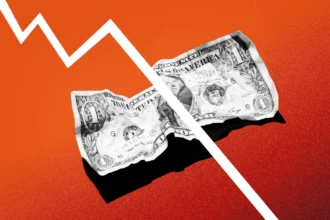Spain’s economy is performing at levels not seen since the global financial crisis, yet political observers are puzzled: voters don’t seem to care. Despite record-low unemployment and strong GDP growth, public sentiment remains muted, reflecting a complex mix of social, political, and cultural factors that are shaping the nation’s mood.
Economic Metrics on the Rise
Recent economic data paints a striking picture of recovery and growth:
- GDP growth: Spain’s economy is expanding at a pace faster than most of its European peers, driven by strong domestic consumption, industrial output, and tourism.
- Unemployment: The jobless rate has fallen to its lowest level since the 2008 financial crisis, signaling a healthier labor market.
- Exports and trade balance: Spanish exports are climbing, particularly in automotive, energy, and technology sectors, bolstering foreign revenues.
- Consumer confidence: Spending patterns indicate a resurgence in consumer confidence, with retail sales and services seeing steady growth.
Economists point out that these indicators signal a robust recovery, positioning Spain as one of Europe’s most dynamic economies in 2025.
The Disconnect Between Growth and Voter Sentiment
Despite these positive indicators, opinion polls reveal a striking disconnect between economic performance and public optimism. Analysts suggest several reasons:
- Persistent inequality: While macroeconomic metrics are strong, income and wealth disparities remain. Many citizens feel they are not reaping the benefits of growth.
- High cost of living: Rising housing costs, inflation in essential goods, and energy prices continue to strain household budgets. For many voters, day-to-day pressures overshadow headlines about GDP growth.
- Political disillusionment: Spain has faced political fragmentation and frequent government changes, leaving voters skeptical of policymakers’ ability to address structural issues.
- Youth disengagement: Younger populations, even amid declining unemployment, report low optimism about career prospects, housing, and social mobility.
One sociologist notes: “Economic growth doesn’t automatically create happiness. Spaniards are measuring success not just by numbers but by tangible improvements in their daily lives.”
Sectoral Contributions to the Boom
Several key sectors are driving Spain’s economic surge:
- Tourism: With post-pandemic travel surging, Spain remains one of the world’s top destinations. Revenues from tourism are higher than ever, supporting employment in services and hospitality.
- Manufacturing and exports: The automotive sector, renewable energy components, and high-tech manufacturing are expanding, contributing significantly to trade surplus.
- Renewable energy investments: Spain’s aggressive push into solar, wind, and hydrogen infrastructure is generating jobs and positioning the country as a European energy hub.
- Startups and digital innovation: Madrid and Barcelona are emerging as regional centers for tech innovation, attracting foreign investment and talent.
Despite these achievements, the economic narrative is largely confined to business circles, with many voters unaware of the broader recovery story.
Political Implications
The disconnect has real consequences for Spain’s political landscape:
- Government approval ratings remain modest, even as economic metrics improve. Citizens appear more concerned about governance, corruption, and social issues than macroeconomic growth.
- Electoral volatility is likely. Voters are more responsive to short-term pressures such as healthcare access, housing affordability, and energy costs than long-term growth trends.
- Policy focus may shift toward addressing inequalities and social welfare rather than purely macroeconomic stimulus, as political leaders attempt to align perception with reality.
A political analyst noted: “Spain’s leaders must translate economic wins into visible benefits for ordinary citizens. Without that, growth alone won’t buy political capital.”
Lessons for the Global Economy
Spain’s case offers broader insights into the relationship between economic performance and public perception:
- Growth is not enough: Strong GDP numbers and employment statistics do not automatically translate into popular approval.
- Inequality dampens optimism: If citizens feel excluded from economic gains, even record-low unemployment won’t satisfy them.
- Communication matters: Policymakers must not only grow the economy but also ensure that citizens understand and experience the benefits.
- Structural reforms are key: Long-term political stability often depends on structural policies that address housing, education, healthcare, and social mobility alongside growth.
Conclusion
Spain’s economy is booming, with unemployment at a post-crisis low and GDP growth outpacing much of Europe. Yet voters remain cautious, highlighting a growing gap between economic performance and lived experience.
For Spain to translate economic success into political goodwill, leaders will need to focus on tangible improvements for citizens, bridge social inequalities, and communicate clearly about the benefits of growth. Otherwise, even a thriving economy may not be enough to win hearts and minds.














